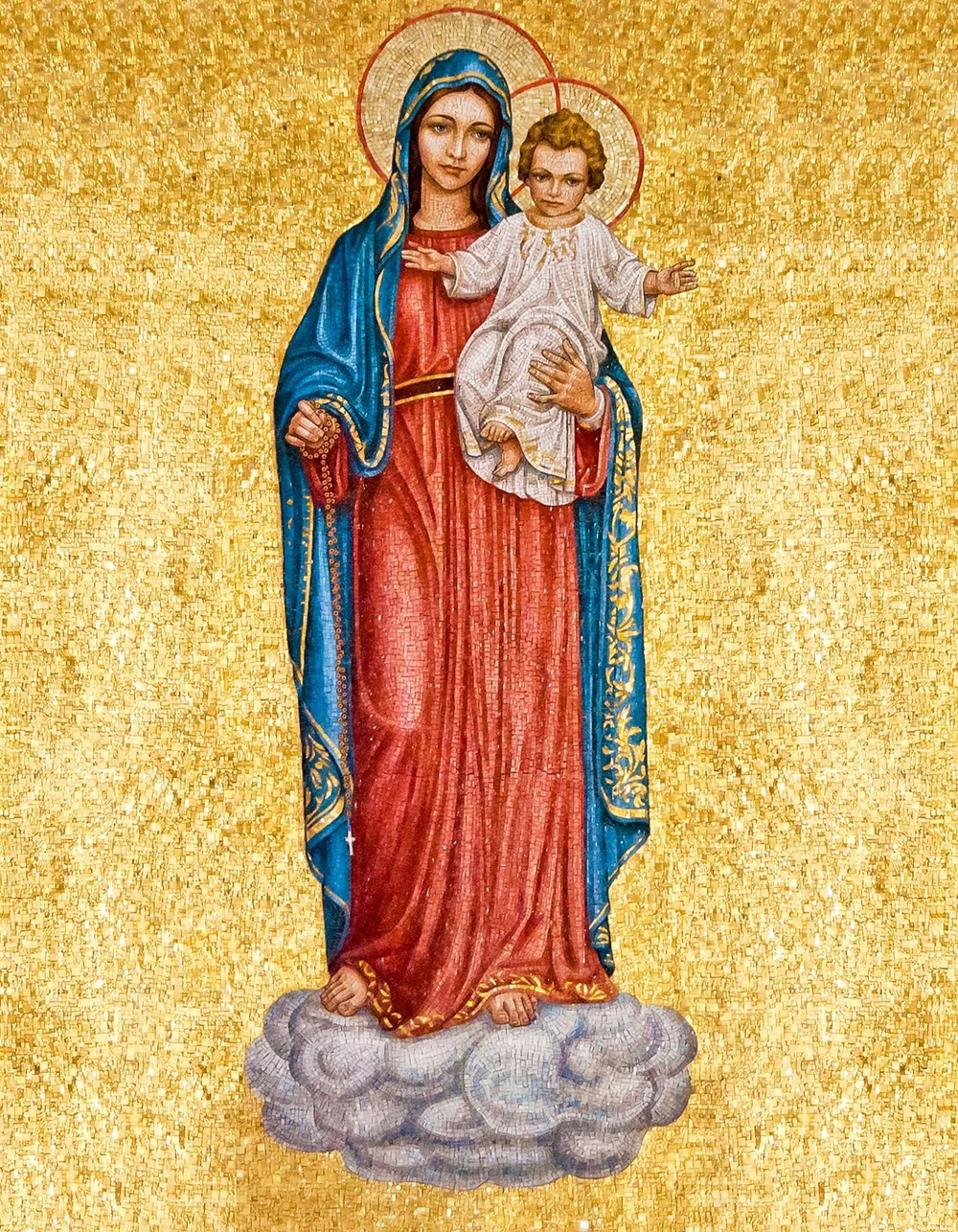Brother Fred Ayoo, SM. ON THE VOW OF POVERTY

Table of Contents
General View of the Context of Living the Vows. 2
2.0 The Vow of Poverty in the African Context 4
3.0 Challenges in Living the Vow of Poverty in Today’s World. 5
3.2. Need for Consistency. 5
The Vow of Poverty
Introduction
In the real sense, and based on the economic standard of most African countries, Africans are generally poor, in comparison with the most developed countries all over the world. Poverty is not an easy bone to chew. The vow of Poverty is one of the three evangelical counsels in the church, given through the Holy Spirit. Trust is an essential value in any relationship. One cannot entrust himself / herself to anybody without this basic element.
Trust provides us an assurance, security, and confidence of not being abandoned and betrayed. In our relationship with God, our faith-conviction is the goodness and unconditional love of the invisible God who gives us a far greater sense of security and trust that we will never be abandoned and betrayed for He is ever faithful in His promises. This trust and faith in Him lead us to totally entrust our lives, our dreams, our hopes, and our future in His loving care and providence. Those who possess God are never wanting of anything. “God alone suffices.”
This paper deliberates on the basic ideas that builds the concept of the vow of Poverty, a synopsis in the African context and that of the Christian faith, basing it to the Consecrated Religious vocation. The first part gives the general introduction of the vows: Poverty, Chastity and Obedience. The second part of this work looks at the context of living the vow of poverty in the African context, the third part will venture on the understanding of the vow of poverty of in the Christian basis, and the last part looks at the vow of poverty in the Consecrated Religious Vocation.
General View of the Context of Living the Vows
In understanding the evangelical counsels, ( Schneiders 2014) asserts that, the proper understanding and prudent practice of religious poverty has probably never been easy in any age. It is of the very nature of religious poverty, because it has to do with material goods with which we cannot dispense absolutely and whose value is always relative to cultural situations, that it is always a provisional arrangement that has to be constantly reevaluated and readjusted.[1]
Our own times are characterized by conditions that make the understanding and prudent practice of poverty even more difficult than in times past. The major difference between our own age and any previous one, in relation to poverty, is our global interdependence at the economic level and our awareness of it.
First, we are aware of the immense variety in standards of living throughout the world and even in our own country No matter how simple a lifestyle we adopt we cannot escape awareness that it is luxurious by comparison with that of many of our sisters and brothers.
Second, we are aware of the immensity of the problem of poverty, which makes individual acts of sharing and hospitality seem almost pointless. Third, and following from the last point, we realize that the only way to affect the economic situation in which we live is to act collectively upon institutions. Poverty, the evil that is eating up our brothers and sisters in so many places in the world, is not natural disaster, normally the result of individual selfish choices. It is a systemic evil that must be dealt with systematically; it is institutional sin that must be dealt with institutionally. Whatever poverty means today, it has to take account of these realities.
Vowed Life-A Sign of Contradiction
Looking at the general view of the three vows, (Bujo 2016), in his Religious Life: A Sign of Contradiction, has it that, the consecrated vowed life is a Radical Call[2]. The radicality in this case is that which requires one to go beyond his/her ability of living chased life, beyond his/her strength, and beyond limitations that might come in the process of the life itself.
From this sense, ibid, stresses the essence of the radical call in the sense that, a religious person called to a life of evangelical counsels, is in him/herself, a sign of contradiction. He/she contradicts the normalcy of what the societal apathy dictates, he/she contradicts the creation understanding and the command to our fast parent of "As for you, be fruitful and increase in number; multiply on the earth and increase upon it.” (Gen 9:7). It is a sign of contradiction because, as one vowed to poverty, chastity and obedience be seen as unfruitful, the Lord who calls him/her to the consecrated Vocation grants him/her children beyond his/her limits. This means that a religious person will always be misunderstood in his/her life.
Vowed Life in the Juridical Sense
In his view of the three evangelical counsels in the line of the Code of Canon Law, (Battelli 1990), asserts that, while there can hardly be relevant diversities about the observance of Chastity, there may be different expressions of poverty.
Regarding obedience, it is advisable that the proper laws clearly determine the modes and the customs of each institute, so as to prevent difficulties on the part of both the superiors and the religious[3]. This is a church juridical view of the concepts of life-based on evangelical counsels. It may sound scary and strict in its sense, but it calls for a self-disciplined way of life, that which does not bind us only to the law, but to Christ calls and chooses an individual.
2.0 The Vow of Poverty in the African Context
According to (Ibid 2016):
“…for social values such as kindness, hospitality, generosity, gratitude, love, the funerals of the poor, or even the sentiment of the bereavement as much as the solidarity with the oppressed, depend on money. Therefore, in the absence of money, my vowed life of poverty, called to awaken the sense of evangelical poverty, and thus save humanity from such catastrophe.”[4]
The elements mentioned above concisely luck not in the African societal way of life. Though viewed in the global sense, and basically delved on in the line of consumerism and culture, (Mkwanazi (2015).) echoes clearly that the positive influence of consumerism is displayed in constructive developments in society, but amidst the positive contributions, there are also negative effects that are relentless in the destruction of communities.
Although this affects almost all aspects of life, the concept of this work will address, in general, two characteristics: these are the destruction of African culture, and specifically in our immediate religious environmental degradation. Culture “consists of whatever it is one has to know or believe in order to operate in a manner acceptable to its members.”
3.0 Challenges in Living the Vow of Poverty in Today’s World
In many instances, we feel that we can do nothing. But lack of means should not be an excuse for doing anything or not trying to do something.
3.1. Need for Closeness
How to engage in the struggle against poverty? From the beginning, our Founders, inspired by the Gospel, understood that the important thing was not to weigh in with heavy resources, but to accept a certain vulnerability and to actually live with those most deprived. Sometimes this closeness took the form of the duty of hospitality or of sharing financial resources. Therefore, we
Are called to be among the poor as “servants to their masters”3? Without this need for closeness, to be poor among the poor becomes an empty slogan, as useless as it is harmful.
3.2. Need for Consistency
Concretely, we need to ask ourselves where our commitments are… Our chapter texts have plenty to say about our desire to be committed to peoples in need. In reality our choices for missionary activity speak for themselves and indicate our priorities.
3.3. Need for Adaptation
Situations evolve rapidly. When a war or tensions break out inside a country or natural disasters occur, we see thousands of people taking to the roads carrying with them only what they can. We called to recognize the courage shown by these people. New situations are appearing today because of the distress caused by the AIDS epidemic. Adapting to an attitude in favor of such issues of JPIC, calls on our reserves of energy. It is worth recommending that each Religious “must study the needs, discover society’s wounds, and seize every opportunity offered in one’s position to bring a remedy and healing for such needs and wounds”5.
3.4 Spiritual Needs
Concern for the most deprived is not the monopoly of one individual religious congregation. Thousands of other organizations pursue the same ends and often with extraordinary efficiency. If we had been only a Non-Governmental Organization, we would no doubt have achieved great things, but would we have in fact realized our aim? It is not necessary to be a consecrated person or even a Christian to give a glass of water to someone in need. But we do this “in the name” of Christ himself (Mk. 10:37). It is this spiritual aspect which helps us recognize Christ in the most deprived (Mt. 25:31-46).
3.5 Need for Competence
It is generally clear, however, that in so many cases, goodwill is not enough. So as to avoid mistakes due to harmful paternalistic attitudes, it is urgent that we acquire appropriate qualifications. No one can improvise when it comes to being a teacher, a headmaster, a doctor, a nurse, a social worker, or a carer for street children.
Real credibility comes from proper training. Our work among the poor brings us into contact with other groups which undertake to lobby for international organizations. Getting involved in this requires preparation and a lot of experience. It must be accepted that the parameters of the religious vocation cannot be reduced to parish administration. In some situations, a brother would be better suited than a priest – the spiritual motivation for the mission is the same but the way of carrying it out is different.
3.6 Family Needs
In the same spirit, another question sometimes crops up: what can we do, or must we do, when confreres’ parents need help or ask us for support? For many confreres family concerns are a constant worry and a responsibility they have to face up to. This is not a new problem. It needs to be stated that some confreres manage as best they can without saying anything about how they resolve such dilemmas. The time is right to look again at SRL 40.1: “Our charity too is expressed in the interest that we take in our own families and in our attentiveness to them. Each circumscription ‘of origin’
decides upon the manner of hospitality to them and the help it will offer them should the need arise”. Nothing can be properly set up unless there is a discussion within each circumscription and an attitude of complete transparency on the part of all religious men and women.
4.0. The Vow of Poverty as Lived in the Marianist Spirituality
According to the Marianist spirituality, the vow of poverty is strengthened by the two most important words: Simple lifestyle, and inclusivity.
4.1. Simple Lifestyle
In his reflection on this point, (Wijtten 1994) sponges out that there can be no following of Jesus, no genuine Christianity without a sense of brotherhood or sisterhood nor without a sense of the poor. 'The sense of the poor is essential to the message of Jesus, as essential as the sense of prayer. It gives a sense of brotherhood and sisterhood its realism and its concreteness, a deeper call to a life of simplicity.
This is strikingly expressed in the gospel account of the last judgment: '. . . Lord, when did we see you hungry and feed you or thirsty and gave you to drink, or stranger and welcome you, naked and clothe you, or sick or in prison and visit you.. .Truly I say to you as you did it to one of the least of my brothers or sisters, you did it to me (Matt 25:31-46).
Personal and communal affluence and temporal security make it increasingly difficult for many religions to make the incarnation the model for personal and communal action. In Philippians 2:5 we are told: 'The attitude you should have is the one that Christ Jesus had.' His attitude was that of a humble servant walking the path of obedience to death on the cross.
4.2. The Spirit of Inclusivity
For the Marianist congregation, the vow of poverty is an invitation to a life of inclusivity, which finds its root course in Sharing the Mission of Mary's Motherhood. Chaminade was a pastoral director and an initiator of apostolic works. His Marian writings-found principally in letters and notes for sermons and conferences-are not theoretical treatises, but ways of presenting the person and mission of Mary to awaken and nourish the faith.
His Marian writings contain more biblical references than one would expect from an early nineteenth-century writer, and they rely on several seven tenths- and eighteenth-century authors, together with some patristic texts, principally from Augustine, Ambrose, and Bernard. There are references to the images of Mary in popular devotion, but the core writings view Mary within the context of Christianity's central truths-the Incarnation, the Redemption, and the Church.
In contrast to a later nineteenth-century tendency to extol Mary's unique privileges in a way that elevated her beyond imitation, Chaminade presented an image of Mary related to us Maria pro nobis. The traits of Mary-her faith, love, and cooperation; her motherhood and mission-were all reflected in the life and mission of Chaminade's communities.
Mary's participation in the mysteries of salvation
This was made possible through her choice by God, and by her active faith and love: "All these mysteries of love were not accomplished in Mary without her active participation. They took her example, found in her only after she had pronounced the Fiat that brought happiness to heaven and earth. It was her admirable faith that effectively disposed her to receive all the favors of the Highest.
Mary was not a passive instrument; she was called to cooperate in God's plan of redemptive love, and this cooperation was accepted by God as a contribution to the work of salvation: "By her consent to the Incarnation of the Word, the Blessed Virgin contributed most powerfully and effectively to the work of our Redemption and by this very consent, she devoted herself so completely to our salvation, that
it may be asserted that she bore all men in her womb as a true mother does her children.
b) Mary's association with Christ
Inclusively, the Blessed Virgin Mary holds to the Marianists that our connection to Christ is not limited to the events of the Incarnation: "Christ, who was born of Mary by the Holy Spirit, associated Mary in all his works and mysteries.
Chaminade outlined the phases of Mary's spiritual maternity. At the Annunciation, Mary conceived Christ physically, and, at the same time, through her faith and love, she conceived, along with Christ, the members of Christ's body. "In conceiving the
Savior in her womb, she understood that she conceived the whole Christ, both his physical and his mystical body .... By conceiving the Savior in her virginal womb, she conceived spiritually through her love and faith-all Christians, members of the Church and of Jesus at Calvary, Mary shared in Christ's offering so that all might have life. In addressing her as "Woman;' Christ confirmed her in the role of the New Eve, and Christ's words, "Behold your Son;' and Mary's acceptance of John, indicated her acceptance of the responsibility of forming all her children in the image of her firstborn
c) The final phase of Mary's motherhood
The Marianist spirit of inclusivity is Mary’s continuing relationship with the Church and with the multitude of believers. Mary's apostolic mission is a continuation of her motherhood.
More than any other nineteenth-century writer or ecclesial document, Chaminade spoke of Mary as a mother: mother of God and mother of Christ; but also, and significantly, the mother of all
who are born in Christ; mother of the Church; mother of Christians, mother of all people, our mother. 46 Members of the French School generally used the term servant of Mary. For Chaminade, the preferred term was children of Mary-sons, daughters, brothers, sisters (the words are in the plural)-and, it is for that reason, that he would have preferred the term family for his religious organization.
Mary continues to fulfill her responsibilities to her children through her nurturing love; her mission is to assist all her children to grow into the image of Christ, her firstborn. She says to each, "Do whatever he tells you." Those consecrated to Mary enter in the mission which is none other than that of the Lord. In the Letter of 1839, Chaminade wrote, Mary "enrolls her children in her militia and consecrates us as apostles .... Ours is indeed a grand work, a magnificent work, and if it is universal in scope, it is because we are missionaries of Mary, who says to us, 'Do whatever He tells you.' Yes, we are all missionaries and to each one of us the Blessed Virgin gives the mandate to work at the salvation of our brethren in the world.
Our founder, Blessed William Joseph Chaminade channeled a dynamic sense of mission and the
Church's great confidence in Mary's assistance into communities of faith and mission, intended to evangelize the generation influenced by the Enlightenment and the revolution, who would be convinced not by words but by fraternal associations freely witnessing to the Gospel message.
Conclusion
From the deliberation made in this paper, it is important to conclude that, the vow of poverty, among other evangelical counsels of Chastity and obedience, is an important spiritual gift bestowed on the church through God’s grace. This paper has brough the poverty in the African context, poverty in the Christian and religious context.
It has also explained some of the challenges experienced in living the vow of poverty in today’s world. But above all, the vow of poverty in the Marianist context makes a very important section of this work.
Therefore, it is important to deduce that, poverty, like chastity and obedience, requires human and communal cooperation.
Bibliography
Battelli, G. MCCJ. Religious Life: In the Light of the New Canon Law. Nairobi: Saint Paul Publications-Africa, 1990.
Bujo, Benezet. Religious Life: Asign of Contradiction. Nairobi: Paulines Publications Africa, 2016.
Ibid. Religious Life: A Sign of Contradiction . Nairobi: Paulines Publications-Africa, 2016.
Mbiti, John S. African Religions and Philosophy. Nairobi: Heinemann, 1967.
Mkwanazi, Anne Thembekile. .". ""A critical review of the role of the theological values of the religious vow of poverty in the face of consumerist lifestyle among the youth of South Africa"." Master in Theology , (2015).: 4-17.
Schneiders, Sandra Marie. "A Vow of Poverty." Santa Clara University: Scholars Common , 2014: 2-3.
Watke, Edward. "Biblical Counseling Seminar Materials." Revival in the Home Ministries, 2000: 18-25.
Wijtten, H. "The Simple Lifestyle." The Furrow, , 1994: 45(4), 221-228.
Wrigley-Car, Robyn. "Peace and spirituality: ‘The Theological." Journal for the Study of Spirituality, 2022: 122-127.
[1] Schneiders, A Vow of Poverty, pp 2-3, 2014
[2] Bujo, Religious Life: A Sign of Contradiction, 2016.
[3] Battelli, 1990
[4] Ibid 2016
WritingArticles from Fredrick Ayoo
View blog
CULTURAL DIVERSITY IN THE SPIRIT OF INCLUSIVITY AMONG MARIANIST BROTHERS, REGION OF EASTERN AFRICA. ...

Mahatma Gandhi said that “A…culture resides in the hearts and in the soul of its people”. Culture, i ...
You may be interested in these jobs
-
International Livestock Research Institute (ILRI) Nairobi, Kenya Full timeThe International Livestock Research Institute (ILRI) works to improve food security and reduce poverty in developing countries through research for better and more sustainable use of livestock. ILRI is a CGIAR research centre - part of a global research partnership for a food-se ...
-

Monitoring and Evaluation Intern
3 days ago
The Youth Agenda Nairobi, Kenya Full timeABOUT THE COMPANY · Youth Agenda (YAA) is an independent, national, non-profit, non-partisan youth led and youth serving organization founded in 1996. Sparked by evidence exclusion of youth in spheres of life and fuelled by a passion for the 'total' youth. Youth Agenda's mission ...
-

Finance Officer at
1 week ago
Izwe Africa Group Nairobi, Kenya Full timeIzwe Africa Group is an established credit provider operating in Ghana, Kenya and Zambia. We service a range of economically-active individuals, entrepreneurs and business owners with a range of financial solutions including purpose-based loans, asset-backed loans and savings and ...

Comments